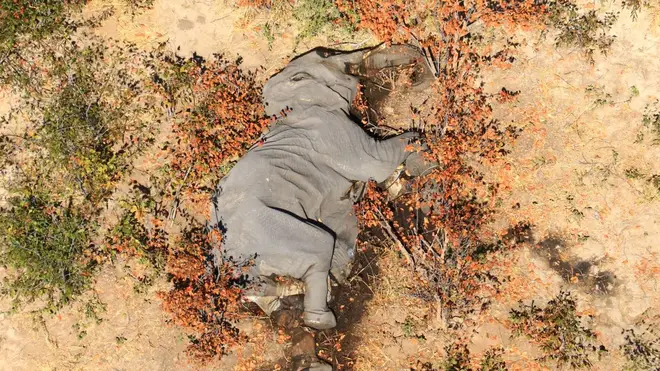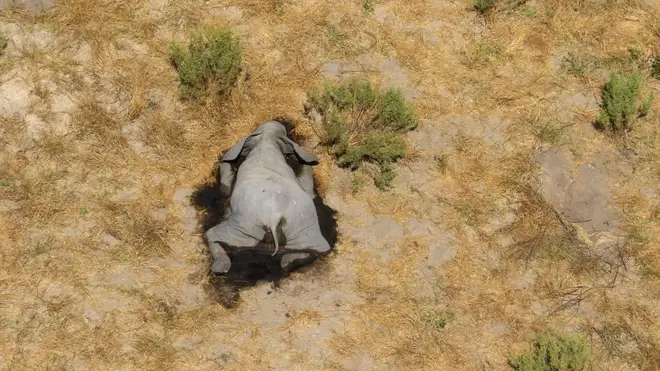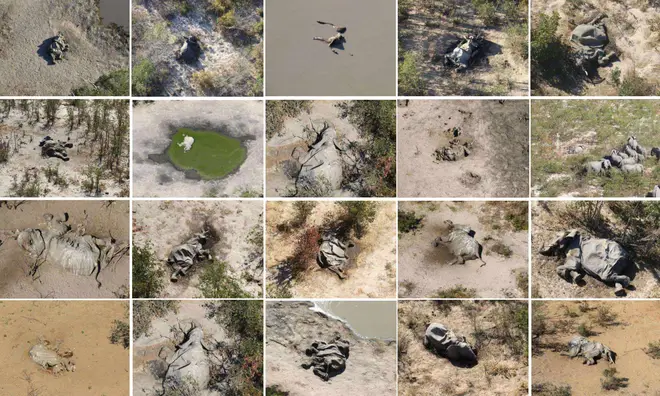
Henry Riley 4am - 7am
1 July 2020, 23:52

Hundreds of elephant deaths in the space of just a few weeks in Bostwana are being investigated by the country's government.
Mystery has shrouded the deaths of more than 350 elephants across the northern Botswana region of the Okavango Delta.
The majestic creatures were first reported to be dying at the start of May, but by mid-June the figure had shot up to 169 after local conservationists discovered dozens of carcasses while flying over the region.
Just a few weeks on, that number has more than doubled, but nobody has so far provided a reason why.
Dr Niall McCann, of the UK-based charity National Park Rescue, described the mass deaths as "totally unprecedented" in circumstances unrelated to drought.
"At least 350 elephants have died - the scale of it is astonishing," he said.
"Botswana is home to a third of Africa's elephants and 10 per cent of those are in this region, so this could have a real impact on the global population."
Read more: Man arrested in India over death of pregnant elephant ’caused by firecrackers’
Read more: Thai elephants return to villages due to fall in tourist numbers

He said it was "extraordinary" to see so many deaths in such a short period of times.
“This is a mass die-off on a level that hasn’t been seen in a very, very long time. Outside of drought, I don’t know of a die-off that has been this significant," Dr McCann added.
Botswana's government has said lab results on samples taken from the bodies are still weeks away, which means finding out what happened to the animals is still weeks away, however an aerial survey has shown that 70 per cent of them centred on watering holes.
Dr Cyril Taolo, acting director for Botswana’s department of wildlife and national parks, told the Guardian: “We are aware of the elephants that are dying. Out of the 350 animals, we have confirmed 280 of those animals. We are still in the process of confirming the rest.
“We have sent [samples] off for testing and we are expecting the results over the next couple of weeks or so."
Anthrax and poisoning by humans have already been ruled out, the government said, and the issue has affected both male and female elephants of all ages.

If poaching was the cause, the tusks would likely have been removed, according to Phys.org.
Meanwhile, Dr McCann said methods used by poachers, such as cyanide poisoning, would have caused deaths among other animals, which has not been seen.
The country is home to a third of Africa's already declining elephant population.
Dr McCann explained that researchers were unsure whether the cause of death is naturally-occurring or man-made.
He said: "It could make its way to humans and that's very worrying at a time when the transmission of diseases from animals to humans is very much on people's minds because of the coronavirus."
The mysterious deaths could impact Botswana's tourism industry, which is heavily dependent on elephants.
Poaching had threatened the country's elephant population, but numbers have now grown from 80,000 in the late 1990s to 130,000 in recent years.